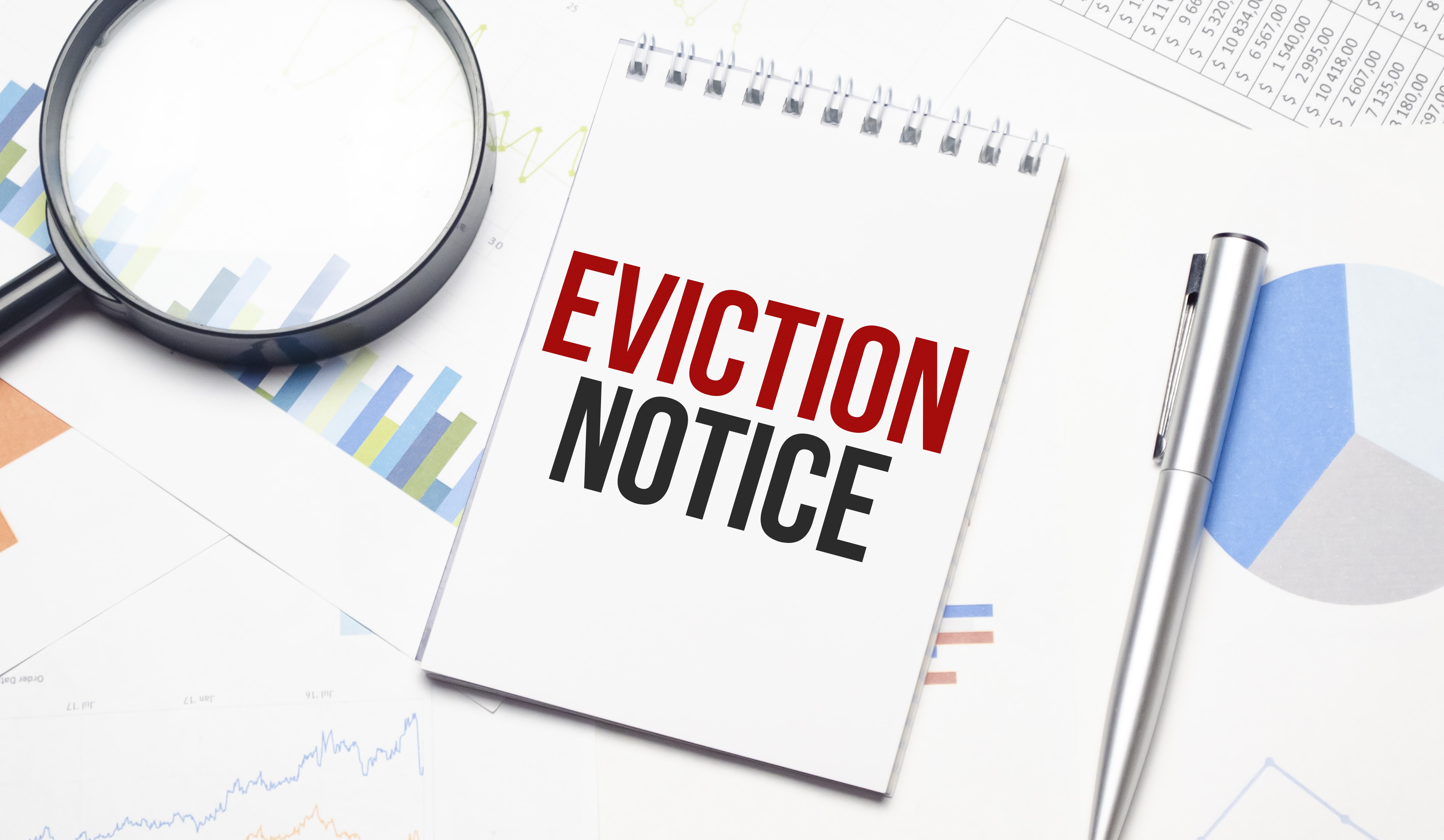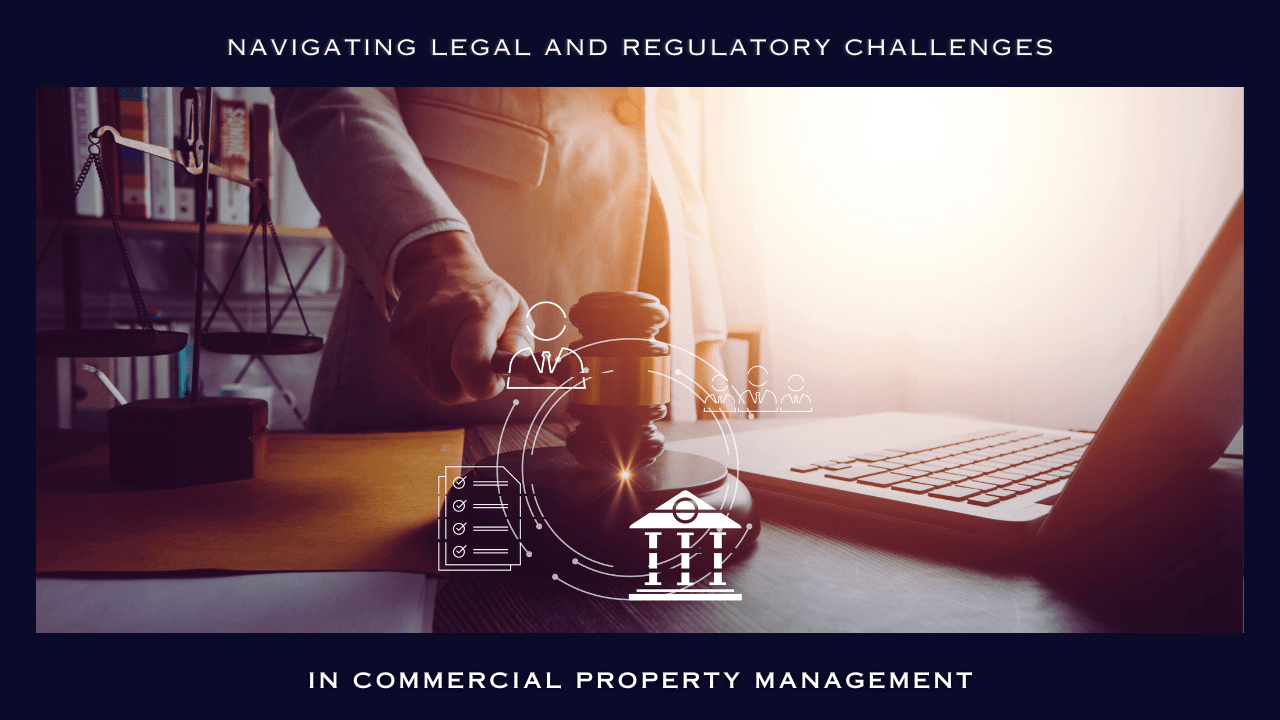Commercial tenants in California do not have nearly as many rights as residential tenants, but there are still a strong set of tenant protections in place when we’re talking about commercial properties. Whether you’re renting out an office building, a retail center, an industrial park, or something else entirely, you need to be aware of the legal and regulatory challenges that face commercial property owners in the state.
At Bell Properties, we help owners succeed in Southern California commercial property management. When you partner with our team, you don’t have to worry so much about compliance issues or staying up to date with the latest laws and the newest legislation.
We do that for you.
Our team prioritizes our legal knowledge, and we stay up-to-date with California's ever-changing legal and regulatory landscape.
We’re not here to share an entire legal handbook with you, but we do want to provide some useful and relevant information regarding California's legal and regulatory challenges when it comes to effectively managing commercial properties.
Here’s what Bell Properties wants you to know.
California Commercial Tenant Rights and Responsibilities
In California, commercial property tenants are protected by a list of their own rights and regulations. Understanding these rights is going to help you establish and maintain better tenant relationships. It will also help you avoid legal pitfalls and contribute to a fair and harmonious business relationship.
One of the major rights of California commercial tenants is the right to a safe and healthy property. As the owner of your commercial space, you take on a legal obligation to maintain the premises in good condition, ensuring that it meets all building and safety codes. This includes providing adequate security measures, functioning utilities, and proper maintenance of common areas. You also need to notify your commercial tenants of any potentially hazardous materials or chemicals that you may use during the upkeep and maintenance of your building or property.
The tenants have a right to a written and comprehensive lease agreement as well. You’ll want this for your own peace of mind, too. For example, your lease agreement must outline the tenant's rights to privacy, security deposits, maintenance, and repairs. All of these rights and responsibilities must be in strict accordance with the local, state, and federal laws. As the property owner, you must always ensure that you comply with these legal obligations.
What to Include in a Southern California Commercial Lease Agreement
We mentioned the lease and how it’s an important part of protecting the rights of your tenants and sharing those rights with the businesses moving into your property.
A lease protects you and your property, too. It’s a legal agreement between you, the landlord, and your tenant. This document outlines the terms and conditions under which the tenant can use the commercial property.
Make sure your tenant reviews the lease agreement with you before signing and moving in. There may be questions and last minute negotiations that will need your attention.
Some of the legal and regulatory issues that every commercial lease agreement needs to address are:
Lease Term. The duration of the lease agreement should be clearly specified, including the start and end dates. Remember that commercial lease agreements can be for any length, from one year to 10 years or more. You and your tenants both need to understand and accept the length of the lease. This allows for better planning and budgeting on both ends. Is the lease flexible in when it ends? Make sure that there’s language stipulating to that.
Rent and Payment Terms. Every lease agreement must outline the rental amount, any additional charges, and the frequency of rent payment. Explain to your tenants how you expect rent to be paid and what the consequences are for late rental payments. Include any other costs that the tenant is responsible for, whether that’s property taxes, insurance, maintenance, and ongoing preventative services such as landscaping and pest control.
Maintenance and Repairs. You need to know who will be responsible for maintenance and repairs before you enter into the lease with your tenants. Discuss the responsibilities for property maintenance and repairs. It is going to make your rental experience far easier and a lot less risky if you clarify who bears the costs and obligations associated with maintaining the premises. What if an elevator breaks? What if something goes wrong in a tenant’s unit specifically? Who will pay for the repairs and who will take the lead on hiring vendors, etc? Be as explicit as possible in this regard in order to avoid lawsuits and other potential problems.
Alterations and Improvements. This is going to be an important clause for any commercial property. You’ll need to disclose who is responsible for making the requested renovations and build-outs to your property. It might be you, it might be the tenants, and it might be some combination of the party. Be clear and direct in your lease and make sure that any alterations are mutually agreed upon.
Dispute Resolution. You want to avoid court, so make sure you have strict provisions around resolving disputes. Write something into the lease calling for mediation or arbitration. Understanding the process for dispute resolution can be beneficial in case legal disputes and disagreements arise during the lease term.
Make sure everyone has adequate insurance. Talk to an insurance professional to make sure you’re carrying enough coverage yourself, and be sure that your tenants have their necessary coverage as well.
Legal Building Codes and Safety Standards
Property owners are legally required to adhere to building codes and safety standards. These codes and standards vary from locality to locality, but all of them must follow California's Uniform Building Code. As a real estate investor, you must ensure that your property meets all the necessary codes and standards to prevent any potential lawsuits and to keep your tenants safe.
If you’re not sure what the codes are and whether you’re in compliance, working with a Southern California commercial property management company is exactly the kind of support you need. At Bell Properties we will let you know where you stand and whether any additional attention needs to be paid to your building or property to ensure it’s up to code and not a lawsuit waiting to happen.
Environmental Laws and Regulations
California has some of the strictest environmental laws in the country. As a Southern California property owner, you may face various environmental challenges specific to this state and the industry that you’re working in. These environmental factors can include:
Soil contamination
Hazardous waste
Stormwater runoff
Toxic chemicals
To avoid penalties and lawsuits, it is crucial to adhere to California's environmental laws and regulations. You may need to work with an environmental lawyer or consultant who can help navigate these complex regulations. At Bell Properties, we can give you the necessary advice as property managers, but if you’re in an industry that has environmental implications, you might need a dedicated legal team to tell you whether your property has any specific concerns. Talk to us, and we’ll connect you with an outstanding environmental attorney
Commercial Properties and ADA Compliance
The Americans with Disabilities Act requires property owners to make their commercial properties accessible for all individuals, including those with disabilities. This can mean many different things to your building, and location will play a big part in how you make your property accessible.
ADA compliance also falls under California regulations, and you must ensure that your property is accessible to people with disabilities. Failure to comply with ADA regulations can result in significant fines, and you may be sued for discrimination, which can be financially devastating.
This might include dedicated parking spaces for people with disabilities, handrails leading from the parking area to the building, ramps near the steps, and other accommodations that need to be part of your planning and enforcement.
Evicting a Commercial Tenant
 Commercial rent and eviction processes require a series of steps. In the case of non-payment of rent or other lease violations, commercial evictions follow a legal process that begins with you or your attorney issuing a notice of default or demand for compliance, allowing the tenant an opportunity to rectify the issue.
Commercial rent and eviction processes require a series of steps. In the case of non-payment of rent or other lease violations, commercial evictions follow a legal process that begins with you or your attorney issuing a notice of default or demand for compliance, allowing the tenant an opportunity to rectify the issue.
If rent continues not to be paid or the lease continues to be violated, you may proceed with legal eviction proceedings. Commercial evictions may require that you file a lawsuit or take legal action to regain possession of the property. The specific procedures and timelines vary depending on where you are and why you’re evicting.
Navigating California's legal and regulatory landscape can be a somewhat overwhelming task, especially for commercial property investors who are new to the industry. You need to stay informed about any updates or changes to the laws that may impact your commercial properties. We have highlighted some of the most significant legal and regulatory challenges you may face in Southern California commercial property management. However, at Bell Properties we know that specific properties and specific industries will have their own unique set of rules and requirements to follow.
By staying informed and adhering to regulations, you can ensure that your commercial property investment is a successful one. Contact us at Bell Properties Commercial Real Estate, and we’ll help you stay compliant.



